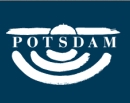Writing on the 20th anniversary of the Rwanda Genocide and just one month after commemorating 25 years after the chemical bombings of Halabja and the Anfal campaign against the Iraqi Kurds, peace and reconciliation, so easy to say and yet so hard to attain, are phrases yet again being bandied around. Division and conflict, difference and exclusion, discrimination and injustice dominate our lives. Having worked in many conflict zones, been close to communities and families as they live through and emerge from conflict; seen and accompanied thousands as they uproot and flee with what they can carry; been deeply moved and privileged to see families reunited with lost children; facilitated the re-integration of child soldiers back into their villages years after they left; seen political leaders struggle to transit from rebel movements to legitimate representative powers … Reconciliation and transformation has been my bread and butter.
Yet this weekend I experience it for the first time.
This weekend I was privileged to be part of the (re) birth of a community. This was a coming together of different groups, each with their own very legitimate and complex baggage that has been pulling them back over generations, extending difference, guilt and ambivalence, preparing the land for further division and conflict, exclusion and hatred. It was a collective coming-out of sorts. A time to pause, reflect and re-set the direction. A time to re-wire and re-programme.
I would like to think that we’re turned the corner for good. At least at the very local and personal scale where each of us that is involved and is able to operate. My idealism makes me wonder if we’ve even started the shift for and with future generations. There is no doubt that the potential is there.
So what is this all about? My great grandfather Dr Alfred Alexander, a highly educated, cultured and successful Berlin doctor in the 1920s decided he and his family needed a “country” house to get away from their sophisticated and frenetic city life. On the banks of Gross Glieneke Zee they were the first to build a simple, elegant weekend house. They invited their friends for tennis, picnics, boat trips and swimming – until 1936 when the family fled Germany leaving behind not only their property but also a life, culture and memories impossible to re-assemble. Since then the property has past from Nazi hands to the East German State and then to the City of Potsdam. The Berlin Wall traversed the garden separating the house from the lake, families crowded in when housing was scarce and in more recent years the house was squatted, by junkies and finally last summer by a family of foxes.
This weekend was billed as the “clean up” weekend. The community of Gross Glieneke worked alongside members of the Alexander family (spanning three generations) filling an enormous city skip with years of accumulated junk left in the house, clearing the land around the house, making it safe, clean and prepared for the possibility of a new existence. While we worked, shared coffee, snacked on chocolate and cake, we were visited by both local and national media, cameras in the air, excited by a story that moves beyond retribution and historical sign-posting to forward looking reconciliation and creativity. Local politicians, curious yet doubtful, shifted from their normal sceptical stance with an eye on land values to enthusiasm for a project where their political capital can only increase. We uncovered the original floor boards, the Delft tiles imported in the 1920s above the fireplace, the rare inbuilt cupboards, wood-panelled walls and crazy paving from the terrace overlooking the lake. Newspaper pages, used to insulate the house, from each of its periods of habitation have been kept.
And yet more astonishing than the hard physical work and the sense of camaraderie was the mutual recognition of past pain and anger, guilt and separation alongside the desire to acknowledge the past and create for the future. This could not have been more evident than during the singing of Friday night Shabbat prayers in the Abraham House, a beautifully restored 1927 Jewish House in the village. For the first time in 75 years candles were lit, wine blessed and bread shared, again across generations and communities. The following day the local village cultural and historic association inaugurated a new exhibition, integrating a presentation and discussion of the Alexander family and the house. Again, with Alexander family members present a room packed to capacity, the combination of radio clips of both Hitler and Himmler declaring the Final Solution; the extraordinary journey of the Alexander torah that dates from the 1790s, arrived from Berlin in London wrapped in a carpet in 1937 to then be read as continuing rites of passage from childhood to adulthood and membership of community by today’s generation; and the gasp of astonishment when the community heard German spoken from this “foreign family” describing both life in Berlin in the 1920s but also what it was like to grow up in London with the memories of Germany fresh in his parents’ minds.
This notion of one community, despite geographical dislocation and language barriers, was able to identify not only a common past but more importantly a common future. In making ourselves vulnerable, a willingness to take risk, to expose ourselves and be prepared to share what is clearly intimate and deeply personal we moved collectively from what a local project with historic possibility to a social project with an assured future. This future is still fragile, trust is still to be gained but the foundations have been built.





